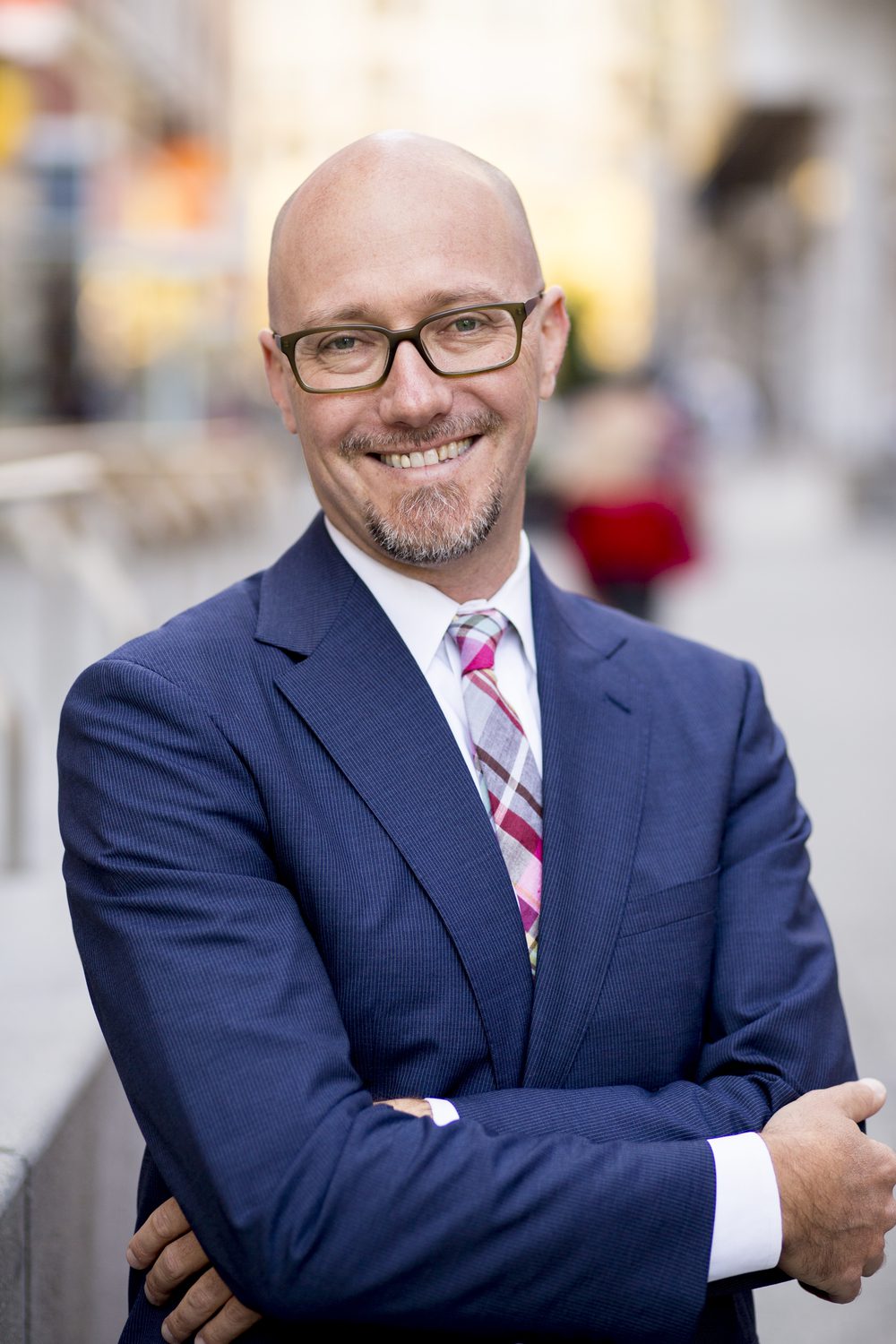
Gabriel Metcalf. Photo courtesy of SPUR
Gabriel Metcalf is president and CEO of SPUR, a nonprofit membership organization that promotes good planning and good government through research, education and advocacy. He discussed his new book, Democratic by Design: How Carsharing, Co-ops, and Community Land Trusts are Reinventing America, with James Tracy, co-founder of the San Francisco Community Land Trust.
James Tracy: Your book proposes building “counter institutions” as a strategy for building a more equitable society. What are CIs and how are they different from a regular small business or nonprofit venture?
Gabriel Metcalf: Democratic by Design is a book about alternative institutions in the American progressive tradition. The idea is to create living examples of a better society in the here and now. These examples can then be studied and improved upon. But the goal isn’t just to have them exist as sources of inspiration. The goal is to actually have them get big and try to displace or outcompete the mainstream institutions—to give people a choice to opt into an alternate set of social practices.
The book looks at a variety of alternative institutions throughout American history, from communes to land trusts to co-ops (and many others). I take an expansive view of what counts as an alternative institution, so I’m comfortable including many kinds of progressive businesses and non-profit ventures within the definition. It’s a theory of change that is potentially available to a lot of different kinds of organizations and a lot of different social movements.
You use your experience as a cofounder of City CarShare to illustrate the potential of alternative institutions. On the surface, it looks like this project predicted the businesses of the “sharing economy,” such as Uber and Airbnb who have faced criticism for contributing to the precarious state of working-class life today. How is City CarShare different than these enterprises?
Gabriel Metcalf: Personally, I think the term “sharing economy” has lost its usefulness, and includes a bunch of businesses that have nothing to do with any kind of collectivism or rethinking of ownership models, although there is still a more radical branch of the older sharing economy movement at places like shareable.net. Democratic by Design opens with the story of the founding of one of the first car-sharing organizations in North America, more than 20 years ago. We were interested in the potential of alternative institutions, based on what we had learned about them from New Left theorists. As we learned that history, we were struck by the gap between their big ambitions and how small the actual projects turned out to be. We wanted to find an alternative institution that had the potential to actually engage large numbers of people. We were all working within the sustainable cities movement as well, so car-sharing seemed like a perfect fit, as a way to try to change the role of the automobile within city life.
We never imagined at the time that it would get so big so fast, or become part of this bigger concept within capitalism that is now called the “sharing economy.” That is sometimes what happens with alternative institutions—think about credit unions or organic food, both of which became huge areas of business. I think it’s an interesting part of the history of some parts of our economy, that they started out as idealistic experiments and were then absorbed into more traditional business forms. That’s not necessarily a bad thing: it’s good that lots of people get food that is grown organically, just like it’s good that lots of people share vehicles instead of owning their own. But what that means for activists is that it’s time to move on to the next project, and not stay stuck on something that no longer has transformative potential or no longer needs your activist energies.
Democratic by Design comes at a time in history when social movements like Fight For 15 and Black Lives Matter are mobilizing thousands against economic inequality and racial oppression. What do you think your book contributes to these conversations?
Gabriel Metcalf: Alternative institutions are not the only way to make change. Progressive social movements are going to need to use many different strategies depending on the time and place and nature of the struggle, from community organizing to electoral politics, from strikes to policy reform. I profile some social movements that to me did a good job of “putting the pieces together” in the sense of melding together many different strategies, including alternative institutions. So I do think that alternative institutions could potentially play a role as part of the broader struggles for social justice today, for one thing, by creating economic entities that are structured to take the high road rather than fighting against fair wages or other kinds of social protection. I hope activists from many of different social movements will find some ideas in the book that are useful to them.
With the housing crisis reaching a national crescendo, you propose the community land trust as a viable solution. What about this approach is useful for those fighting displacement and gentrification?
Gabriel Metcalf: There’s a lot to say about this. First of all, there is no one solution for housing affordability that will work by itself. We need many different solutions—adding supply, traditional affordable housing, reform of zoning rules, new construction techniques, rent control—and lots more. We also need to solve for the income side of the equation, so people have more purchasing power for everything including housing. We need to do a lot of things.
Second, it’s important to remember that not all cities in America are dealing with the same type of crisis. The expensive cities, where you and I live and where there is a true crisis of displacement, are not the most common situation. There are many places where the bigger problem is one of disinvestment, and people are struggling with lack of economic opportunity more than expensive housing.
I think community land trusts are a really interesting alternative institution, and one that is useful in both contexts—both the expensive cities and the cities dealing with disinvestment. Practically speaking, they are a way to stabilize housing prices. Increases in underlying land value, as a result of general growth in the community, do not automatically translate into housing price appreciation. CLTs provide a middle path between ownership and renting, which allows households to build wealth through asset ownership up to a point while still trying to maintain housing affordability.
But to me the bigger, underlying idea is that land trusts represent a new form of ownership outside of the market. When land is managed by a non-profit trust—whether for conservation purposes or affordable housing—we are asking people to think about the long term good when they make land management decisions. We are, in a sense, engaging the “highest self” that people are capable of to make fundamental economic and environmental decisions, rather than leaving it to the mechanics of self-interest pursued through the market. Community land trusts represent the nascent form of an alternative system of land ownership. In that sense, they illustrate the broader strategy of alternative institutions as a way to make change: create the alternative, and then try to grow it, with the goal of displacing the mainstream set of institutions over time.
Let’s talk about the long-term vision. Do you see alternative institutions building more equitable islands within capitalism, leading to new versions of socialism, or something different altogether?
Gabriel Metcalf: What I’m really trying to do in this book is develop a theory of how society is changed. I think a useful starting place for activists is the understanding that there is not one “system.” There are many systems, many forms of domination—and more practically, many institutions that need transformation. Society is changed one piece at a time. Even the most profound, sweeping changes, like political revolutions, leave a lot un-changed from the previous regimes. Think about the American Revolution, which left the institution of slavery essentially un-touched, along with the institutions of property ownership, patriarchy, and much else. It is always this way—there is no short-cut around developing specific alternatives for each institution that needs transformation. The 19th century anarchists perceived this clearly—that mere political revolution would not be enough—and they eventually called for a total social and cultural transformation and began to actively experiment with new models for organizing collective life.
What that means is that it’s really important to be thoughtful about which alternative institutions we work on—to identify projects that are strategically creating an alternative [that] will be significant in terms of its effects on the broader society. The book talks a lot about how to know which alternative institutions are the right ones to pick, from a particular time and place.
To your question about “islands within capitalism,” I think it’s true that alternative institutions generally start out small, and they are surrounded by a much larger set of mainstream institutions. But the hope is that if they are successful, they will grow and expand. If alternative institutions are going to be transformative, they need to be open to newcomers and oriented toward recruitment, rather than just trying to provide a place of retreat as if they were for a subculture. The point of the alternative institutional strategy is to create new ways of doing things, and to make those new ways available to as many people as possible.






Comments